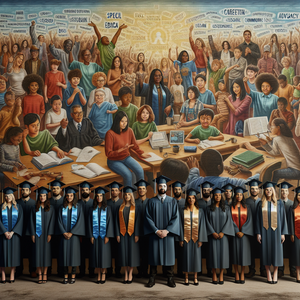
Exploring Diverse Career Paths for Special Education Graduates
When pursuing a degree in special education, many people envision themselves in traditional classroom settings. However, the opportunities available for graduates extend far beyond the four walls of a school. As society increasingly recognizes the importance of supporting individuals with unique learning needs, a degree in special education opens the door to a variety of rewarding career paths across multiple sectors. This article delves into the expansive career options available to special education graduates, emphasizing how their expertise can make a significant impact in diverse roles.
Job Summaries:
Education Coordinator:
- Education Coordinators play a pivotal role in creating and implementing tailored educational programs for students with special needs.
- They work closely with teachers, parents, and school administrators to develop curricula that are inclusive and effective.
- Their responsibilities include training staff on special education best practices.
- A bachelor's degree in special education or a related field, coupled with strong organizational skills, is essential for this role.
- Education Coordinators ensure that institutions meet the diverse needs of their students.
Disability Coordinator:
- In both educational and corporate settings, Disability Coordinators ensure compliance with regulations regarding disabilities and advocate for individuals needing accommodations.
- Their tasks include policy development and resource allocation.
- A background in special education or social work is beneficial, along with excellent communication skills.
- This role is crucial for promoting inclusivity and accessibility in various environments.
Speech-Language Pathologist:
- These professionals assess and treat individuals with speech and language disorders.
- Developing personalized therapy plans for students.
- A master's degree in speech-language pathology and state licensure are required.
- By enhancing communication skills, Speech-Language Pathologists significantly contribute to the educational success of their students.
Behavioral Specialist:
- Behavioral Specialists focus on addressing challenging behaviors in students with special needs.
- They create intervention plans based on thorough assessments.
- They work with educators and families to implement effective strategies.
- A background in psychology or special education is important for this role.
- Their expertise is vital in fostering supportive environments that encourage positive behaviors.
Educational Diagnostician:
- Educational Diagnosticians evaluate students to identify learning disabilities.
- Conduct assessments that inform tailored educational strategies.
- A master's degree and certification in educational diagnosis are typically required.
- Their work is critical in ensuring that students receive the necessary support for their academic development.
Assistive Technology Specialist:
- These specialists integrate technology solutions to support learners with disabilities.
- Responsibilities include assessing needs, recommending tools, and providing training.
- A degree in special education or instructional technology is often necessary.
- Their contributions enhance accessibility and learning opportunities, significantly impacting students' educational journeys.
Curriculum Developer:
- Curriculum Developers craft educational materials that address various learning styles, particularly for students with special needs.
- They collaborate with educators to create inclusive curricula.
- A background in education or instructional design is typically required.
- This role is essential in promoting equitable educational practices.
School Social Worker:
- School Social Workers assist students facing emotional or social challenges.
- They collaborate with families and community resources.
- A master's degree in social work and state licensure are generally necessary.
- Their holistic approach helps ensure that students receive the support needed for success both academically and socially.
Instructional Coordinator:
- Instructional Coordinators oversee the development and implementation of educational programs, ensuring they cater to diverse student needs.
- Typically requiring a master's degree in education, they work closely with teachers to enhance instructional quality.
- Their role is vital in upholding educational standards and fostering inclusive practices.
Resource Teacher:
- Resource Teachers provide specialized instruction to students with special needs within mainstream classrooms.
- They adapt lessons to ensure access to the curriculum.
- A bachelor's degree in special education is required, along with relevant certification.
- This role is fundamental in supporting inclusive education.
The variety of roles available to those with a special education degree highlights the importance of specialized skills across different sectors. With the ongoing evolution of this field, the demand for skilled professionals who can support individuals with diverse learning needs continues to grow. Graduates interested in exploring job opportunities may benefit from dedicated job boards or educational institution listings to find positions that align with their passion for making a difference. By recognizing the numerous possibilities that a special education degree offers, graduates can confidently shape their careers and meaningfully impact the lives of individuals with special needs. Each role not only leverages their education but also contributes to creating a more inclusive and supportive society.
Explore More Jobs

